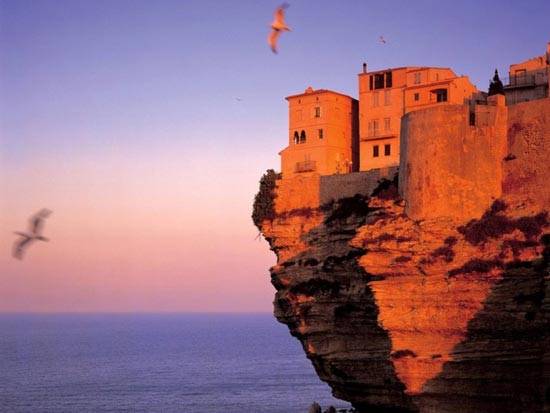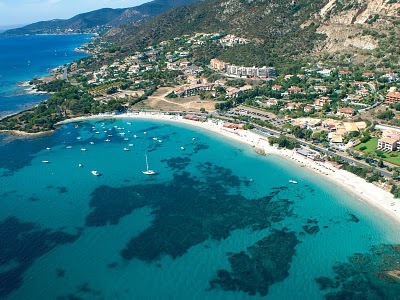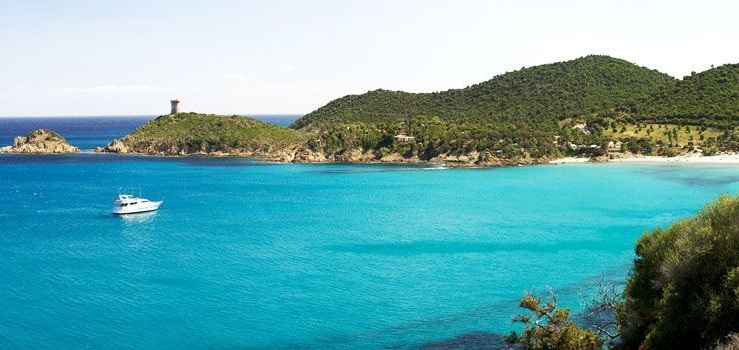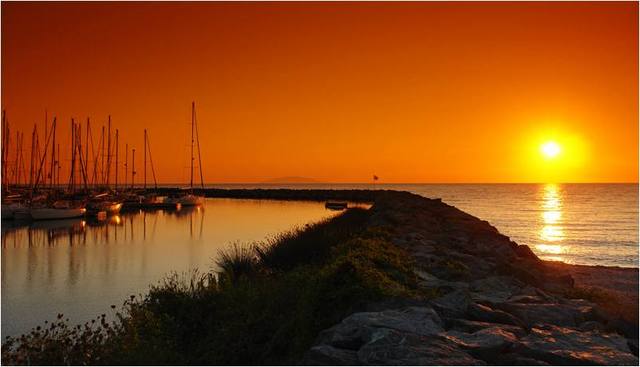Corsica; Beautiful Mediterranean Island Of France
Corsica, an island 180 km from the Cote d’Azur, which is far south from May to June and September are the most pleasant climatic periods. In August, life is much more expensive than off-season. Obviously, because it is, according to the Corsicans so busy that the code will look like the Riviera. The same Corsicans will pride themselves on their much unspoilt island than the mainland. And rightly so.
Take some Alpine and throw a big party through Cevennes. Lard with the result that imposing cliffs (Calanques), and sandy beaches. Some woods and a lot of scrub (maquis) on it. This is Corsica, an idiosyncratic, peculiar island millions of years ago just stuck to the Alps Sat
Who the mountain island to the bone will experience across the island to the Grande Randonnee 20 walks, a 200 km trek through the rugged mountains in the heart of the region. The trip is very hard especially during the summer. In the absence of refuges Add to that the extreme heat. Yet many people walk the road just at that time, so it is extremely busy in the huts.
The Grande Randonee 20 runs through the rugged highlands of Corsica. Joost’s Photo Adventures in Corsica
Those who stay on the coast and a day to walk, at short notice should the local weather to call. The rapid weather changes in the mountains from the coast to assess. In the summer of 2002 Therefore some hikers have been killed.
From late December to early April, part of the GR 20 also be made on skis. Corsica is a paradise for skiers. For alpine skiers, there are only a few left and right plate-lifts.

For motorists: Corsica has almost exclusively twisty mountain roads. Apart from the main road along the east coast, the average speed barely above 40 kilometers per hour. The roads are indeed reasonable, but tortuous. Even on main roads for some little bits where two cars can pass each other. The very narrow road from the east coast to the spectacular Col de Bavella we only mention, that is for experienced mountain riders.
The history of the island goes back a long way, evidenced by the discovery of the skeleton of a woman in the years around 6500 BC must have lived. Slightly younger (from 1300 BC), the menhirs were found. The principal location of settlements from the Bronze Age, Filitosa, a fee to visitors. Even with the guide, this site did not seem much more than a hill with some rocks (apart from some menhirs). For example, the nicer Castellu d’Araghju, a castle which is just as much standing that everyone can think about what it must have looked. A visit will cost them nothing except a hot walk half hours.
The first “civilized” people who settled in Corsica, were probably Greeks. They named the island for the island of beauty (Kallistu). Later, Etruscans, Carthaginians, Vandals, Germans and so on, usually not too peaceful.
From 1100 to 1729 successively ruled the city of cities of Pisa and Genoa on the island. Pisa built especially churches, especially Genoa left behind forts and watchtowers. Of these towers is a large number survived. Some seem from the outside even in decent condition.
In 1729 Corsica was supported by France when it was about to release the oppressors from Genoa. That support ended in sheer domination by France, which mainly hit the poor hard. Desperate, the Corsicans have accomplished a Corsican-English kingdom. In vain: the British left the island after a few years, after which Genoa sold the island to France. Since then, the French island. The desire for independence in the eighteenth century thanks to Pasquale Paoli, never entirely disappeared. Corsicans are proud that their Pasquale Paoli wrote a constitution for Corsica, which model would even stand for the Constitution of the United States.

In the year 2003 there is only a small minority who want independence. It uses violence, but little or no focus on tourism. That is far too important to the economy of the island, certainly not rich. Tourists will most numerous bullet holes in the road show.
However, the Corsicans are proud of their language and culture, their beer, their cheese and their wine. The Corsican language is still spoken among themselves, speak all the Corsicans without exception simply French. Belgian problems are than who will start in French in French response. Of regional music concerts are given in the smallest villages.
All places of any interest (after at Corte) lie on the coast. Almost all they owe to the glorious past of the island, a small citadel. In particular, Bonifacio, on the southern tip, is worth a detour. It is a larger medieval town on the spectacular white cliffs. Ajaccio (with Bastia) a place that even today the city still named deserve. The city with its casinos and its nightlife is even a bit mundane nature. But here you can, as everywhere on the island that the island was not as rich as the mainland.
A Canadair waterbombers working at a fire in the Gravona Valley, east of Ajaccio.
The interior areas are rough. Large parts of it are protected nature reserve, including vultures, sparrow hawks and endangered turtles hermann. There are also many wild pigs. Between the mountains and scrub numerous meandering streams in the spring probably raging rivers, but in summer the mountain streams full of dried up ponds, where you can paddle left and right and sometimes a few meters to swim.
That drought in the summer also the biggest problem of Corsica. Not just every year a looming shortage of water for drinking and irrigation, the fire is enormous. Nowhere fire patrol as much as on this island, but still burn every year thousands of hectares of forest and scrub off. A smoldering cigarette butt is enough to a very dry forest in the shaft to turn. Because of the fire is on charcoal bbq on most sites is not allowed (on air must usually does).
The alternative: sailing from Italy. Moby Lines maintains service from Genoa and Livorno, Corsica Ferries from Savona, Livorno and Piombino.
Flying is also possible.



Totally agree with it, Anna 🙂
French Mediterranean coast! Never been there, but French and Mediterranean together sounds awesome 🙂